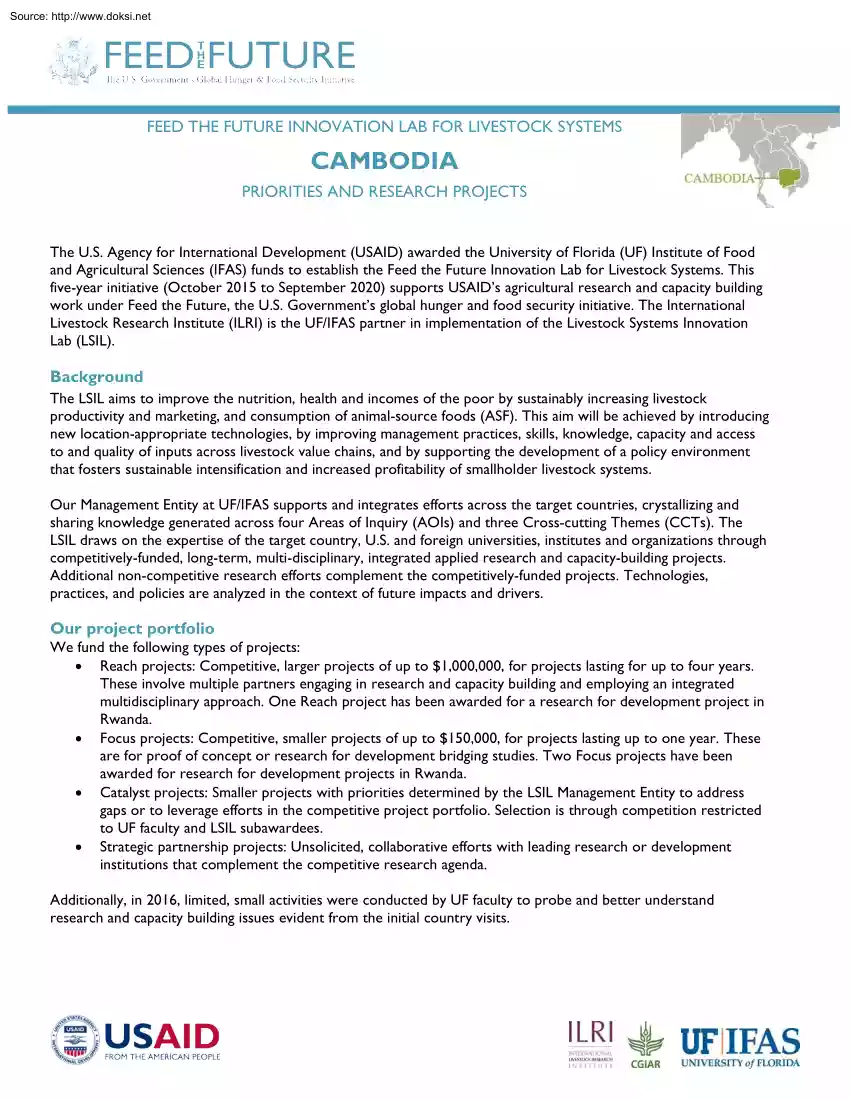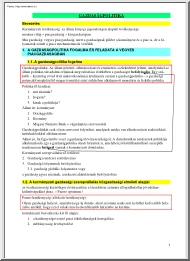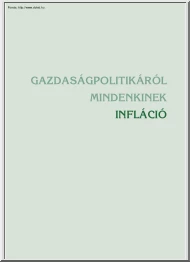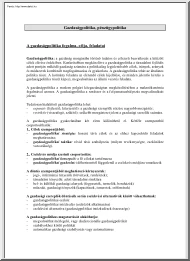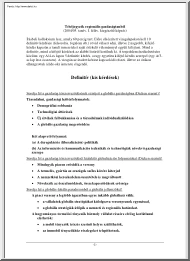Datasheet
Year, pagecount:2017, 6 page(s)
Language:English
Downloads:2
Uploaded:September 21, 2020
Size:647 KB
Institution:
-
Comments:
Attachment:-
Download in PDF:Please log in!
Comments
No comments yet. You can be the first!Most popular documents in this category
Content extract
Source: http://www.doksinet FEED THE FUTURE INNOVATION LAB FOR LIVESTOCK SYSTEMS CAMBODIA PRIORITIES AND RESEARCH PROJECTS The U.S Agency for International Development (USAID) awarded the University of Florida (UF) Institute of Food and Agricultural Sciences (IFAS) funds to establish the Feed the Future Innovation Lab for Livestock Systems. This five-year initiative (October 2015 to September 2020) supports USAID’s agricultural research and capacity building work under Feed the Future, the U.S Government’s global hunger and food security initiative The International Livestock Research Institute (ILRI) is the UF/IFAS partner in implementation of the Livestock Systems Innovation Lab (LSIL). Background The LSIL aims to improve the nutrition, health and incomes of the poor by sustainably increasing livestock productivity and marketing, and consumption of animal-source foods (ASF). This aim will be achieved by introducing new location-appropriate technologies, by improving management
practices, skills, knowledge, capacity and access to and quality of inputs across livestock value chains, and by supporting the development of a policy environment that fosters sustainable intensification and increased profitability of smallholder livestock systems. Our Management Entity at UF/IFAS supports and integrates efforts across the target countries, crystallizing and sharing knowledge generated across four Areas of Inquiry (AOIs) and three Cross-cutting Themes (CCTs). The LSIL draws on the expertise of the target country, U.S and foreign universities, institutes and organizations through competitively-funded, long-term, multi-disciplinary, integrated applied research and capacity-building projects. Additional non-competitive research efforts complement the competitively-funded projects. Technologies, practices, and policies are analyzed in the context of future impacts and drivers. Our project portfolio We fund the following types of projects: • Reach projects:
Competitive, larger projects of up to $1,000,000, for projects lasting for up to four years. These involve multiple partners engaging in research and capacity building and employing an integrated multidisciplinary approach. One Reach project has been awarded for a research for development project in Rwanda. • Focus projects: Competitive, smaller projects of up to $150,000, for projects lasting up to one year. These are for proof of concept or research for development bridging studies. Two Focus projects have been awarded for research for development projects in Rwanda. • Catalyst projects: Smaller projects with priorities determined by the LSIL Management Entity to address gaps or to leverage efforts in the competitive project portfolio. Selection is through competition restricted to UF faculty and LSIL subawardees. • Strategic partnership projects: Unsolicited, collaborative efforts with leading research or development institutions that complement the competitive research
agenda. Additionally, in 2016, limited, small activities were conducted by UF faculty to probe and better understand research and capacity building issues evident from the initial country visits. Source: http://www.doksinet Priorities for Cambodia The first multi-stakeholder Innovation Platform meeting was held on July 7-8, 2016, in Phnom Penh to develop the research priorities for Cambodia (see Appendix 1). A total of 38 individuals representing the Royal Government of Cambodia, NGOs, private organizations, universities, and research institutes participated. Of the 19 organizations that participated, three represented the private sector. Subaward research projects have recently been selected for Cambodia. A second Innovation Platform Meeting, scheduled for September 1, 2017, will be held to ensure that all relevant stakeholders are aware of the selected projects and can provide advice to the project team and support implementation of the projects. Innovation Platform meeting
participants, July 2016. Photo credit: S. Hendrickx/LSIL Overview of ongoing and funded efforts Competitive Reach Projects: Following a competitive process with more than 10 applications for livestock research projects in Cambodia that were reviewed by the LSIL Technical Evaluation Panel, the following three-year Reach project was selected for funding by the LSIL External Advisory Board and approved by USAID and the Ministry of Agriculture, Forestry and Fisheries. • Safe Food, Fair Food for Cambodia. This project, led by ILRI, is assessing the multiple burdens of foodborne diseases associated with key Animal-Source Food (ASF) value chains in Cambodia, in order to adapt and evaluate a market-based approach to improving food safety. The overall aim of the project is to reduce the burden of foodborne disease in informal, emerging formal, and niche markets. The project will target small and medium scale producers following a holistic, One-Health approach. See Appendix 2 for a more
detailed project description, including information on the Cambodian and international collaborators. Competitive Focus Projects: The LISL received four applications for Focus grants for Cambodia, which followed a similar review and approval process as the Reach proposals. The following two projects were selected for funding • Improved Pig Health and Nutrition: The Major Drivers of Profitability and Sustainability for Smallholder Farmers in Cambodia. This Kansas State University-led project aims to: 1) Assess the nutritional composition of locally available feed resources in rural and peri-urban Cambodia and provide economical diet options and recommendations to smallholder farmers; 2) Assess the current disease management strategies on smallholder farms and in rural and peri-urban communities in Cambodia and provide practical recommendations for improved pig health outcomes. • Living Fences for Improved Livestock Feed in Cambodian Smallholder Systems. This University of
Tennessee-led project will assess using leguminous trees as living fences for supplemental livestock nutrition and for protection of crops in Cambodian smallholder livestock systems. The project has four objectives: 1) Evaluate living-fence species using livestock feeding trials; 2) Improve capacities of farmers to produce and manage living fences; 3) Evaluate constraints and impacts of using living fences on farms and 4) Evaluate the potential to use living fences to protect food crops and fodder. 2 www.feedthefuturegov Source: http://www.doksinet Appendix 1: PRIORITIES ASF Production and Marketing • Improve access to and quality of feed, fodder and water for livestock • Improve livestock marketing • Genetic improvement of livestock Livestock Disease Management and Food Safety • Increase diagnostic capacity and surveillance for animal disease and food safety • Promote prudent antibiotic use and reduce antimicrobial resistance • Promote biosecurity Enabling Policies and
Future Systems • • • Increase cattle, pig and poultry production Increase feed production Improving the quality of ASF 3 www.feedthefuturegov Source: http://www.doksinet Appendix 2: COMPETITIVE REACH PROJECT Safe Food, Fair Food for Cambodia Principal Investigators (PI) and lead institution: Dr. Delia Grace, International Livestock Research Institute (ILRI). Co-PI and Collaborator institutions: National Animal Health and Production Research Institute (NAHPRI), Department of Animal Health and Production, CelAgrid, Emory University, USA. Summary: The overall research objective of this project is to assess the multiple burdens of Food Borne Diseases (FBD) associated with key Animal Source Food (ASF) value chains in Cambodia and to adapt and evaluate a marketbased approach to improving food safety with the overall aim of reducing the burden of FBD in informal, emerging formal, and niche markets targeting small and medium scale producers following a holistic, One Health
approach. The project will investigate, for the first time in Cambodia, the links between nutrition and food safety in the context of ASF. The findings will help both nutrition and food safety communities better implement initiatives by leveraging synergies and minimizing trade-offs between attaining nutrition and health outcomes. Given the predominance of women in ASF retail, processing and household use, gender aspects will be fully integrated for the project to succeed. This includes developing estimates for gender-disaggregated FBD health and economic burdens, ensuring the risk management efforts meet the different needs of women and men, and developing recommendations for risk management and communication that are gender sensitive and equitable. The project has the following five objectives with associated activities, outputs and outcomes: • To generate actionable evidence on the health and economic burden (gender-disaggregated) of FBD associated with ASF in Cambodia. • To
develop, pilot and test a new approach to food safety, which relies on incentives (rewards) and lighttouch interventions in close partnership with the private sector. • With stakeholders, to describe, plan and monitor how evidence-based recommendations and the tested approach could contribute to the LSIL Theory of Change. • To make recommendations for enhanced engagement and benefit sharing for men and women in ASF value chains through improving understanding of gender aspects and the gender appropriateness of interventions and also by integrating nutrition and food safety. • To build capacity in understanding food safety risk, its management and effective communication among stakeholders, including the government, private sector, academia, donors, and media. The outcomes will include: • Greater understanding among policymakers, donors and the private sector of the multiple burden of foodborne disease and their implication for nutrition security; • Increased openness to a
promising approach to improve food safety equitably and sustainably; • Agreement by Cambodian food safety stakeholders on what will be needed to take evidence and innovative approaches to greater scale guided by the LSIL Theory of Change; • Improved knowledge and understanding of nutrition-gender dynamics in FBD risks and viable options identified for increased gender equity in FBD risk management; • Improved understanding and communication of risk among academics, policymakers, private sector and media; and • Improved capacity in researchers, students, government and NGO partners and value chain actors. The project builds on strong and long-lived partnerships in Cambodia and the region, based on participatory and multi-disciplinary research collaboration over the last decade. 4 www.feedthefuturegov Source: http://www.doksinet Appendix 3: COMPETITIVE FOCUS PROJECTS 1. Improved Pig Health and Nutrition: The Major Drivers of Profitability and Sustainability for Smallholder
Farmers in Cambodia Principal Investigator (PI) and lead institution: Dr. Michael Tokach, Kansas State University Co-PI and Collaborator institutions: Royal University of Agriculture, Cambodia. Summary: This project aims to develop improved pig health and feeding practices on rural and peri-urban smallholder farms in Cambodia in Battambang, Siem Reap, and Kampong Thom provinces. The project has two objectives: • Assess the nutritional composition of locally available feed resources in rural and peri-urban Cambodia and provide economical diet options and recommendations to smallholder farmers. • Assess the current disease management strategies on smallholder farms and in rural and peri-urban communities in Cambodia and provide practical recommendations for improved pig health outcomes. The project has a strong Human and Institutional Capacity Development (HICD) component as it plans to create a knowledge hub at the technology parks of the RUA - Center for Excellence on Sustainable
Agriculture Intensification and Nutrition (CE SAIN), in order to develop innovative education and training programs, including demonstrations sites. The expected outputs of this project include the following: • A nutrient database for locally available feed sources • Economical diet recommendations incorporating local feed ingredients • A comprehensive assessment of disease management practices and strategies • A pig health outreach program for information dissemination • Training and education platforms, focusing on pig health • Extension and outreach materials and documents • Risk assessment for on-farm disease management Impacts will be attained through successful partnerships and collaborations with in-country researchers and stakeholders and include: • Improvements to pig nutrition and health • Increases in smallholder household income • Improved household access to nutritious food sources • Gender inclusive training programs • Increased HICD for Cambodia
5 www.feedthefuturegov Source: http://www.doksinet 2. Living fences for improved livestock feed in Cambodian smallholder systems Principal Investigator (PI) and lead institution: Dr. Thomas Gill, The University of Tennessee Institute of Agriculture (UTIA). Co-PI and Collaborator institutions: Royal University of Agriculture, Cambodia. Summary: The project focuses on the rigorous evaluation of three nutritious living fence species (Gliricidia sepium, Leucaena leucocephala, and Moringa oleifera) for their potential as supplemental livestock and human nutrition and also as effective protection from wandering livestock. The objectives are: • Evaluate living fence species using on-station livestock feeding trials. • Improve capacities of farmers to produce and manage living fences though: o Crop grow-out of species for livestock feed (and human nutrition). o Trainings at the CE SAIN technology park in Battambang. o Co-design and participatory establishment of “on-farm” trials
of living fences with smallholder households. • Evaluate constraints and impacts of using living fences on farms in two ways: o Conduct quantitative household survey with smallholders. o Conduct focus groups on living fence species adoption with smallholders. • Evaluate the potential to use living fence species to protect food crop and fodder plots on-station. The project builds on past and current initiatives and also aligns with the Agriculture Sector Strategic Development Plan of the Cambodian government. The on-station activities will take place at the CE-SAIN technology parks in Battambang and Phnom Penh, while the on-farm efforts will target the lowland-rice producing rural households in Battambang province, building on UTIA’s ongoing work on horticulture and rice systems, and conducted as part of the Sustainable Intensification Innovation Lab. Contact us: Feed the Future Innovation Lab for Livestock Systems, University of Florida P.O Box 110910 │ Gainesville, FL,
32611-0910 Email: livestock-lab@ufl.edu │ Phone: (352) 294-1064 │ Website: http://livestocklabifasufledu/ Follow us on Twitter and Facebook 6 www.feedthefuturegov
practices, skills, knowledge, capacity and access to and quality of inputs across livestock value chains, and by supporting the development of a policy environment that fosters sustainable intensification and increased profitability of smallholder livestock systems. Our Management Entity at UF/IFAS supports and integrates efforts across the target countries, crystallizing and sharing knowledge generated across four Areas of Inquiry (AOIs) and three Cross-cutting Themes (CCTs). The LSIL draws on the expertise of the target country, U.S and foreign universities, institutes and organizations through competitively-funded, long-term, multi-disciplinary, integrated applied research and capacity-building projects. Additional non-competitive research efforts complement the competitively-funded projects. Technologies, practices, and policies are analyzed in the context of future impacts and drivers. Our project portfolio We fund the following types of projects: • Reach projects:
Competitive, larger projects of up to $1,000,000, for projects lasting for up to four years. These involve multiple partners engaging in research and capacity building and employing an integrated multidisciplinary approach. One Reach project has been awarded for a research for development project in Rwanda. • Focus projects: Competitive, smaller projects of up to $150,000, for projects lasting up to one year. These are for proof of concept or research for development bridging studies. Two Focus projects have been awarded for research for development projects in Rwanda. • Catalyst projects: Smaller projects with priorities determined by the LSIL Management Entity to address gaps or to leverage efforts in the competitive project portfolio. Selection is through competition restricted to UF faculty and LSIL subawardees. • Strategic partnership projects: Unsolicited, collaborative efforts with leading research or development institutions that complement the competitive research
agenda. Additionally, in 2016, limited, small activities were conducted by UF faculty to probe and better understand research and capacity building issues evident from the initial country visits. Source: http://www.doksinet Priorities for Cambodia The first multi-stakeholder Innovation Platform meeting was held on July 7-8, 2016, in Phnom Penh to develop the research priorities for Cambodia (see Appendix 1). A total of 38 individuals representing the Royal Government of Cambodia, NGOs, private organizations, universities, and research institutes participated. Of the 19 organizations that participated, three represented the private sector. Subaward research projects have recently been selected for Cambodia. A second Innovation Platform Meeting, scheduled for September 1, 2017, will be held to ensure that all relevant stakeholders are aware of the selected projects and can provide advice to the project team and support implementation of the projects. Innovation Platform meeting
participants, July 2016. Photo credit: S. Hendrickx/LSIL Overview of ongoing and funded efforts Competitive Reach Projects: Following a competitive process with more than 10 applications for livestock research projects in Cambodia that were reviewed by the LSIL Technical Evaluation Panel, the following three-year Reach project was selected for funding by the LSIL External Advisory Board and approved by USAID and the Ministry of Agriculture, Forestry and Fisheries. • Safe Food, Fair Food for Cambodia. This project, led by ILRI, is assessing the multiple burdens of foodborne diseases associated with key Animal-Source Food (ASF) value chains in Cambodia, in order to adapt and evaluate a market-based approach to improving food safety. The overall aim of the project is to reduce the burden of foodborne disease in informal, emerging formal, and niche markets. The project will target small and medium scale producers following a holistic, One-Health approach. See Appendix 2 for a more
detailed project description, including information on the Cambodian and international collaborators. Competitive Focus Projects: The LISL received four applications for Focus grants for Cambodia, which followed a similar review and approval process as the Reach proposals. The following two projects were selected for funding • Improved Pig Health and Nutrition: The Major Drivers of Profitability and Sustainability for Smallholder Farmers in Cambodia. This Kansas State University-led project aims to: 1) Assess the nutritional composition of locally available feed resources in rural and peri-urban Cambodia and provide economical diet options and recommendations to smallholder farmers; 2) Assess the current disease management strategies on smallholder farms and in rural and peri-urban communities in Cambodia and provide practical recommendations for improved pig health outcomes. • Living Fences for Improved Livestock Feed in Cambodian Smallholder Systems. This University of
Tennessee-led project will assess using leguminous trees as living fences for supplemental livestock nutrition and for protection of crops in Cambodian smallholder livestock systems. The project has four objectives: 1) Evaluate living-fence species using livestock feeding trials; 2) Improve capacities of farmers to produce and manage living fences; 3) Evaluate constraints and impacts of using living fences on farms and 4) Evaluate the potential to use living fences to protect food crops and fodder. 2 www.feedthefuturegov Source: http://www.doksinet Appendix 1: PRIORITIES ASF Production and Marketing • Improve access to and quality of feed, fodder and water for livestock • Improve livestock marketing • Genetic improvement of livestock Livestock Disease Management and Food Safety • Increase diagnostic capacity and surveillance for animal disease and food safety • Promote prudent antibiotic use and reduce antimicrobial resistance • Promote biosecurity Enabling Policies and
Future Systems • • • Increase cattle, pig and poultry production Increase feed production Improving the quality of ASF 3 www.feedthefuturegov Source: http://www.doksinet Appendix 2: COMPETITIVE REACH PROJECT Safe Food, Fair Food for Cambodia Principal Investigators (PI) and lead institution: Dr. Delia Grace, International Livestock Research Institute (ILRI). Co-PI and Collaborator institutions: National Animal Health and Production Research Institute (NAHPRI), Department of Animal Health and Production, CelAgrid, Emory University, USA. Summary: The overall research objective of this project is to assess the multiple burdens of Food Borne Diseases (FBD) associated with key Animal Source Food (ASF) value chains in Cambodia and to adapt and evaluate a marketbased approach to improving food safety with the overall aim of reducing the burden of FBD in informal, emerging formal, and niche markets targeting small and medium scale producers following a holistic, One Health
approach. The project will investigate, for the first time in Cambodia, the links between nutrition and food safety in the context of ASF. The findings will help both nutrition and food safety communities better implement initiatives by leveraging synergies and minimizing trade-offs between attaining nutrition and health outcomes. Given the predominance of women in ASF retail, processing and household use, gender aspects will be fully integrated for the project to succeed. This includes developing estimates for gender-disaggregated FBD health and economic burdens, ensuring the risk management efforts meet the different needs of women and men, and developing recommendations for risk management and communication that are gender sensitive and equitable. The project has the following five objectives with associated activities, outputs and outcomes: • To generate actionable evidence on the health and economic burden (gender-disaggregated) of FBD associated with ASF in Cambodia. • To
develop, pilot and test a new approach to food safety, which relies on incentives (rewards) and lighttouch interventions in close partnership with the private sector. • With stakeholders, to describe, plan and monitor how evidence-based recommendations and the tested approach could contribute to the LSIL Theory of Change. • To make recommendations for enhanced engagement and benefit sharing for men and women in ASF value chains through improving understanding of gender aspects and the gender appropriateness of interventions and also by integrating nutrition and food safety. • To build capacity in understanding food safety risk, its management and effective communication among stakeholders, including the government, private sector, academia, donors, and media. The outcomes will include: • Greater understanding among policymakers, donors and the private sector of the multiple burden of foodborne disease and their implication for nutrition security; • Increased openness to a
promising approach to improve food safety equitably and sustainably; • Agreement by Cambodian food safety stakeholders on what will be needed to take evidence and innovative approaches to greater scale guided by the LSIL Theory of Change; • Improved knowledge and understanding of nutrition-gender dynamics in FBD risks and viable options identified for increased gender equity in FBD risk management; • Improved understanding and communication of risk among academics, policymakers, private sector and media; and • Improved capacity in researchers, students, government and NGO partners and value chain actors. The project builds on strong and long-lived partnerships in Cambodia and the region, based on participatory and multi-disciplinary research collaboration over the last decade. 4 www.feedthefuturegov Source: http://www.doksinet Appendix 3: COMPETITIVE FOCUS PROJECTS 1. Improved Pig Health and Nutrition: The Major Drivers of Profitability and Sustainability for Smallholder
Farmers in Cambodia Principal Investigator (PI) and lead institution: Dr. Michael Tokach, Kansas State University Co-PI and Collaborator institutions: Royal University of Agriculture, Cambodia. Summary: This project aims to develop improved pig health and feeding practices on rural and peri-urban smallholder farms in Cambodia in Battambang, Siem Reap, and Kampong Thom provinces. The project has two objectives: • Assess the nutritional composition of locally available feed resources in rural and peri-urban Cambodia and provide economical diet options and recommendations to smallholder farmers. • Assess the current disease management strategies on smallholder farms and in rural and peri-urban communities in Cambodia and provide practical recommendations for improved pig health outcomes. The project has a strong Human and Institutional Capacity Development (HICD) component as it plans to create a knowledge hub at the technology parks of the RUA - Center for Excellence on Sustainable
Agriculture Intensification and Nutrition (CE SAIN), in order to develop innovative education and training programs, including demonstrations sites. The expected outputs of this project include the following: • A nutrient database for locally available feed sources • Economical diet recommendations incorporating local feed ingredients • A comprehensive assessment of disease management practices and strategies • A pig health outreach program for information dissemination • Training and education platforms, focusing on pig health • Extension and outreach materials and documents • Risk assessment for on-farm disease management Impacts will be attained through successful partnerships and collaborations with in-country researchers and stakeholders and include: • Improvements to pig nutrition and health • Increases in smallholder household income • Improved household access to nutritious food sources • Gender inclusive training programs • Increased HICD for Cambodia
5 www.feedthefuturegov Source: http://www.doksinet 2. Living fences for improved livestock feed in Cambodian smallholder systems Principal Investigator (PI) and lead institution: Dr. Thomas Gill, The University of Tennessee Institute of Agriculture (UTIA). Co-PI and Collaborator institutions: Royal University of Agriculture, Cambodia. Summary: The project focuses on the rigorous evaluation of three nutritious living fence species (Gliricidia sepium, Leucaena leucocephala, and Moringa oleifera) for their potential as supplemental livestock and human nutrition and also as effective protection from wandering livestock. The objectives are: • Evaluate living fence species using on-station livestock feeding trials. • Improve capacities of farmers to produce and manage living fences though: o Crop grow-out of species for livestock feed (and human nutrition). o Trainings at the CE SAIN technology park in Battambang. o Co-design and participatory establishment of “on-farm” trials
of living fences with smallholder households. • Evaluate constraints and impacts of using living fences on farms in two ways: o Conduct quantitative household survey with smallholders. o Conduct focus groups on living fence species adoption with smallholders. • Evaluate the potential to use living fence species to protect food crop and fodder plots on-station. The project builds on past and current initiatives and also aligns with the Agriculture Sector Strategic Development Plan of the Cambodian government. The on-station activities will take place at the CE-SAIN technology parks in Battambang and Phnom Penh, while the on-farm efforts will target the lowland-rice producing rural households in Battambang province, building on UTIA’s ongoing work on horticulture and rice systems, and conducted as part of the Sustainable Intensification Innovation Lab. Contact us: Feed the Future Innovation Lab for Livestock Systems, University of Florida P.O Box 110910 │ Gainesville, FL,
32611-0910 Email: livestock-lab@ufl.edu │ Phone: (352) 294-1064 │ Website: http://livestocklabifasufledu/ Follow us on Twitter and Facebook 6 www.feedthefuturegov
